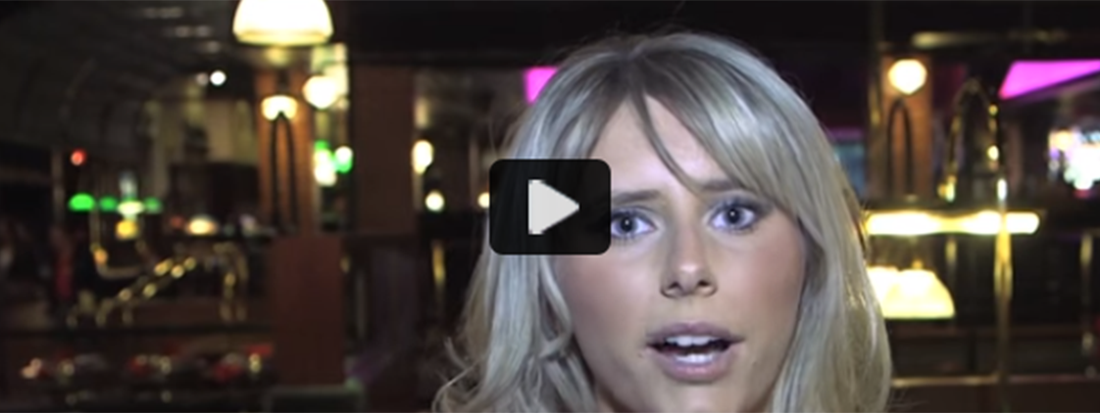
Video Production FAQ
Pre-production
Q: We don’t need a script for our video production, do we? Since I know what I’m going to say, can I just talk and you’ll edit it later?
A: There are lots of ways to “script” a video. Usually we use bullet points or an outline instead of a formal, written script. However, no matter what we do, some form of planning is always necessary. Even if the on-camera talent is speaking “in their own words”, the director and cameraman need to know what material is going to be covered, and in what order, etc.
Video Production
Q: Will I have to memorize lines?
A: No. If you wish to be featured in the video yourself, you’ll probably be speaking in your own words. The best way to do this is print out bullet points and practice until you feel comfortable. Due to the magic of editing, you do not have to get it right in one take to make the best videos. The key is to be confident of what you are saying and the order in which you make your points. Remember, the “impression” you leave on the viewer is much more important than the amount of information.
Q: What is 3D?
A: 3D stands for Three Dimensional. Two or more cameras film the same scene from slightly different positions. The result is then edited during the video production with special software and viewed with special glasses in order to create the illusion of depth. You can see 3D in film, television and video. You can view 3D movies on You Tube with glasses. Your better TV stores will also let you sample 3D televisions with glasses. 3D originated in the 1950s in American movie houses and had a comeback in the 80’s, 90’s and again today.
Q: Why is a three-camera shoot so expensive?
A: Three cameras means significant planning and setup for the video production, special lighting that works for all three cameras, and the cameras must always be perfectly synced with each other. In addition, three cameras means three sets of tapes, three camera operators and three times as much editing.
Post-production
Q: I don’t like the way I look on camera. Do you have to show my face the whole time?
A: We can do whatever makes you comfortable. We can use your voice only and not show you at all. We can show you a little bit. We can show you in a close up, medium shot, or at a distance. Video is an incredibly forgiving and flexible medium, giving us lots of options for video production.
Q: What is unique about web video?
A: Generally speaking, web users are looking for an experience different from one provided by television or DVD. Some characteristics are:
- short duration
- fast paced
- feels “authentic” rather than “scripted”
- “shows” more than “tells”
Q: Can you edit video from a DVD?
A: The video from a DVD that is not copyright protected can be captured onto tape or directly into an editing system. It can then be edited, but since DVDs contain compressed video (lower quality than raw, or uncompressed), it is preferable to work with the original tapes, whenever possible.
Q: Can you edit videos that are already on the internet, for instance on someone’s website?
A: See the answer above. Web videos are usually highly compressed, so they are inferior to uncompressed formats. Also, most web videos cannot be captured or copied for editing. In addition, you would need to secure rights to any video before editing it and using it for your own purposes.
Q: Do I get to keep all of the raw footage?
A: Nothing about raw footage is automatic. Most companies do not turn over their raw footage. Special arrangements can be made, but they need to spelled out in the agreement.
Distribution
Q: Should I use You Tube to play my video on my website?
A: Alternatives to You Tube include streaming the video using your own server or using free services such as Revver, Vimeo and blip.tv. Many people use You Tube to stream video on their websites because it is free, relatively easy to set up and popular. The disadvantage is that your video is clearly branded with the You Tube logo on the player and they add pop up ads. The video quality also ends up suffering compared to streaming the video directly from your site or using a higher quality free service.
Q: How do I know video on my website will increase my return on investment? How can I measure the results?
A: Google analytics, free and easy to use, lets you track lots of different statistics relating to how often your video is viewed. Likewise, you can see if the video has increased overall traffic to your site, purchases and all kinds of other activity.
Q: Can video help drive traffic to my site?
A: The fact that you have a video on your site does not in itself increase your ranking. In order to attract more visitors with your video, you need to do video marketing.
Q:What is video marketing?
A: Video marketing is search engine optimization for video. If your site is well optimized, Google searches will direct users to your site. If your videos are well optimized on You Tube, searches will direct users to your videos. The videos then lead users to your site.
Q: How does video marketing work?
A: The five basic steps to video marketing are:
- keyword research
- using keywords to name the video and the video file
- using keywords to tag the video
- knowing how to choose a thumbnail
- knowing how write the description of the video
Q: What is a “vlog”?
A: “Blog” is short for web log and “vlog” is short for video log, or a blog using video.
Q: Will video slow down my site?
A: Sites that take a while to load often are “flash” sites or sites with flash elements. If compressed and embedded properly, video should not noticeably slow down your site.
Q: What is “compression”?
A: “Uncompressed” video refers to the raw video on a tape or hard drive. “Camera masters”, the tapes inside the cameras that shoot the original video, contain uncompressed video. In order to turn uncompressed video into a DVD or web movie, it has to be compressed, or made smaller so it fits. Compression always involves some type of loss of quality.
Why Video Production By Video Burst?
A note about the author:
David Mayer’s 25-year career as a video producer includes experience as an educator, journalist and composer of advertising jingles. His company Videoburst creates web videos that employ internet marketing strategies, video marketing and search engine optimization. All to help drive web traffic and increase new business. Typical Videoburst videos are short, creative and fun to watch. Videoburst works with clients in Auburn Hills, Troy, Southfield and all over metro Detroit.


